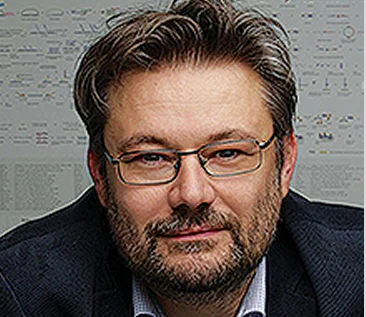From August 26–28, 2024, a three-day workshop titled “Analysis of Variants in a Cloud Environment” was held as part of the PREDI-COO project (IP-2019-04-9308), financed by the Croatian Science Foundation. The workshop aimed to introduce participants to the theoretical foundations of methods for identifying somatic and germline mutations from whole-genome sequencing data, as well as their annotation, visualization, and functional characterization. In the practical section, participants implemented these methods using the AWS HealthOmics cloud environment. This workshop was organized and led by our Bioinfo group members Rosa Karlić and Paula Štancl, in collaboration with Maja Kuzman and Dunja Glavaš from Kuzman Consulting.
For two consecutive years, in 2022 and 2023, members of our group served as expert lecturers and workshop leaders at the MedILS Summer School in Bioinformatics, hosted by the Mediterranean Institute for Life Sciences in Split, Croatia organized by Andrea Gelemanović. Our experts were responsible for introducing participants to foundational concepts in next-generation sequencing and elements of machine learning. The workshops and practical sessions were carefully designed to equip participants with essential skills, including basic Linux command-line usage, programming in R, and performing transcriptome analysis. By combining theoretical knowledge with hands-on practice, the sessions aimed to provide participants with a comprehensive understanding of bioinformatics tools and techniques, empowering them to apply these skills in their research.
At the international Belgrade Bioinformatics Conference on June 18, 2024, our member Paula Štancl, together with Andrea Gelemanović from the Mediterranean Institute for Life Sciences (MedILS), Split, organized a workshop titled “How to Analyze and Interpret RNA-seq Data.” This workshop covered the theoretical background of the main concepts of RNA-seq data analysis, along with a practical session conducted on an example dataset acquired from a publicly available NGS data repository. Participants were guided through the entire process, starting with the acquisition of raw RNA sequences (introduced theoretically) and progressing to differential gene expression analysis (hands-on). The practical session included guidance on differential gene expression analysis, functional enrichment analysis, and concluded with a discussion on interpreting the results and visualizing the data.

While studying molecular biology at the University of Zagreb he developed a strong interest in applying computational methods and approaches to biosciences. For his master thesis he worked on a problem in X-ray crystallography and developed a program for absorption correction of scattered X-ray data. He obtained his PhD in Bioinformatics/Biochemistry, still pursuing his structural biology interests, working on a computational prediction of structural and physicochemical properties of DNA. He spent 10 years as a research fellow at the International Center for Genetic Engineering and Biotechnology in Trieste, Italy, where he also worked on computational prediction and classification of protein domains using machine learning approaches.
In 2002 he established a computational biology group at the Zagreb University, where he moved permanently in 2006 with the EMBO Young Investigators Programme installation grant, and directed the scientific interests towards the newly emerging field of genomics. His bioinformatics group develops computational tools and uses machine learning techniques to tackle open questions in developmental genomics and metagenomics.
In 2011 he became full professor at the Faculty of Science at Zagreb University. He had several international appointments, including a 4-year adjunct professorship at the University of Oslo, Norway and a two-year adjunct professorship at the University of Skövde, Sweden. From 2008 to 2012 he served as the head of the Division of Biology, Faculty of Science at University of Zagreb and was responsible for managing a division of ~150 staff.
He is involved in teaching four graduate-level courses: Bioinformatics, Algorithms and programming, Statistics and machine learning and Computational genomics. During his time as a group leader more than 30 doctoral and master students graduated under his supervision. Some of his graduates continued with PhD and postdoctoral training at prestigious universities around the world, including LMB Cambridge, UK; EMBL, Heidelberg, Germany; RIKEN, Japan and ETH, Zurich, Switzerland.
His scientific track-record includes more than 60 publications in high-level journals and talks in many renowned institutions throughout the world. His research topics are: developmental and differentiation genomics, metagenomics, population genomics and glycomics, origins of multicellularity, epigenomics of cancer, development of computational methods and application of machine learning in genomics and molecular biology.
He is the reviewer in a number of scientific journals, as well as national and international funding bodies and programmes, such as ESF Programme, EC FP7, H2020, and Horizon Europe Programmes, Estonian National Funding Agency, Hungarian National Funding Agency, Flanders Research Foundation, The Netherlands ZonMw Vidi Programme, Croatian National Funding Agencies. He reviewed program applications for Croatian pre-accession and accession structural funds.
Prof. Vlahoviček is a Fellow of the Academia Europaea, and a member of several professional societies, at the national and international level. Professor Vlahoviček is a strong proponent of science reforms in Croatia and evidence-based policy making. He served in the steering committee of Croatia’s highly successful science funding body, the Unity through Knowledge Fund (UKF) and has participated in several strategy-drafting panels at the university and national level. He also served as the Member of the Steering Committee of the Ruđer Bošković Institute, a leading Croatian research entity in natural sciences, with ~900 staff.